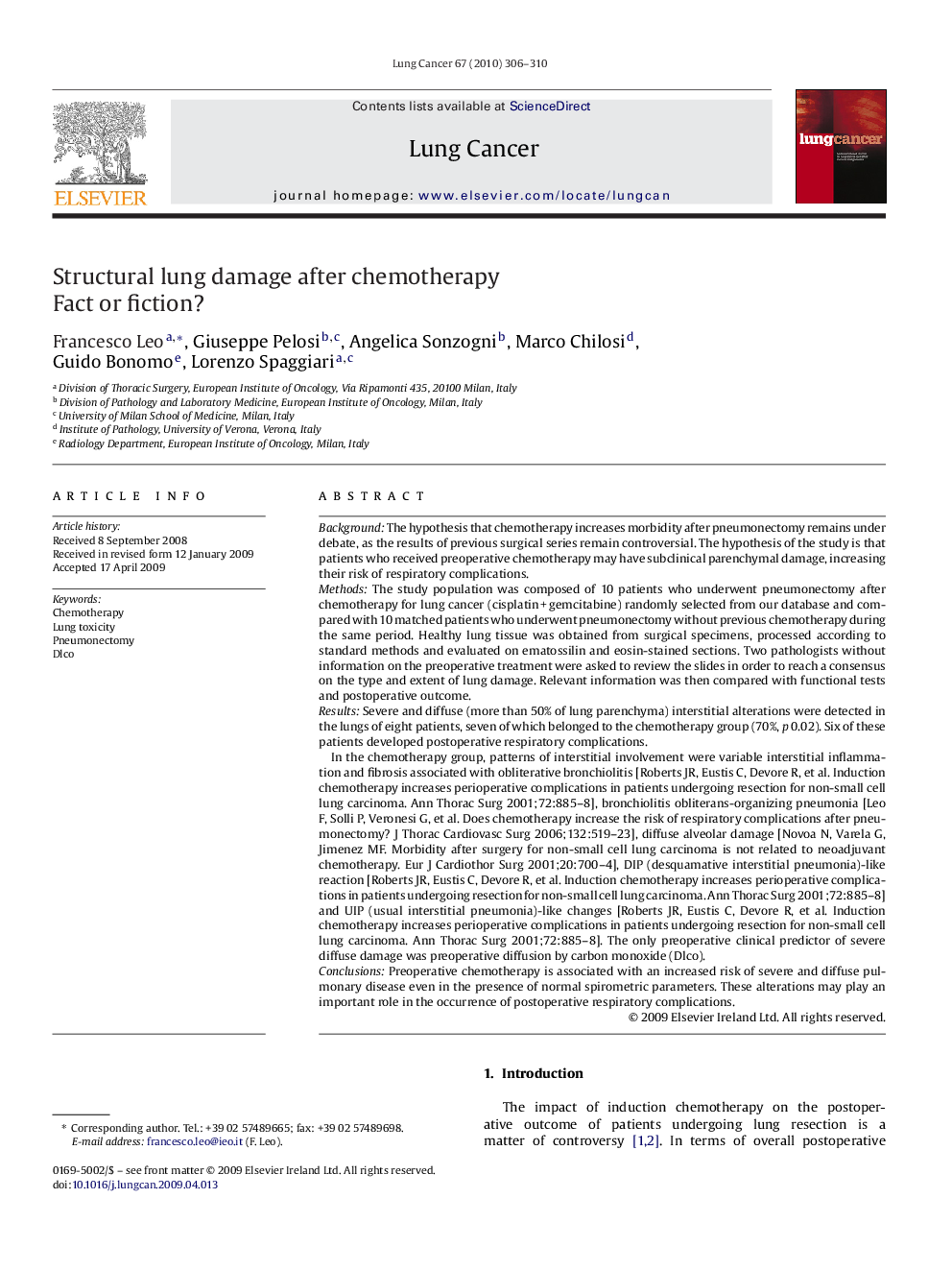| Article ID | Journal | Published Year | Pages | File Type |
|---|---|---|---|---|
| 2143214 | Lung Cancer | 2010 | 5 Pages |
BackgroundThe hypothesis that chemotherapy increases morbidity after pneumonectomy remains under debate, as the results of previous surgical series remain controversial. The hypothesis of the study is that patients who received preoperative chemotherapy may have subclinical parenchymal damage, increasing their risk of respiratory complications.MethodsThe study population was composed of 10 patients who underwent pneumonectomy after chemotherapy for lung cancer (cisplatin + gemcitabine) randomly selected from our database and compared with 10 matched patients who underwent pneumonectomy without previous chemotherapy during the same period. Healthy lung tissue was obtained from surgical specimens, processed according to standard methods and evaluated on ematossilin and eosin-stained sections. Two pathologists without information on the preoperative treatment were asked to review the slides in order to reach a consensus on the type and extent of lung damage. Relevant information was then compared with functional tests and postoperative outcome.ResultsSevere and diffuse (more than 50% of lung parenchyma) interstitial alterations were detected in the lungs of eight patients, seven of which belonged to the chemotherapy group (70%, p 0.02). Six of these patients developed postoperative respiratory complications.In the chemotherapy group, patterns of interstitial involvement were variable interstitial inflammation and fibrosis associated with obliterative bronchiolitis [Roberts JR, Eustis C, Devore R, et al. Induction chemotherapy increases perioperativ
